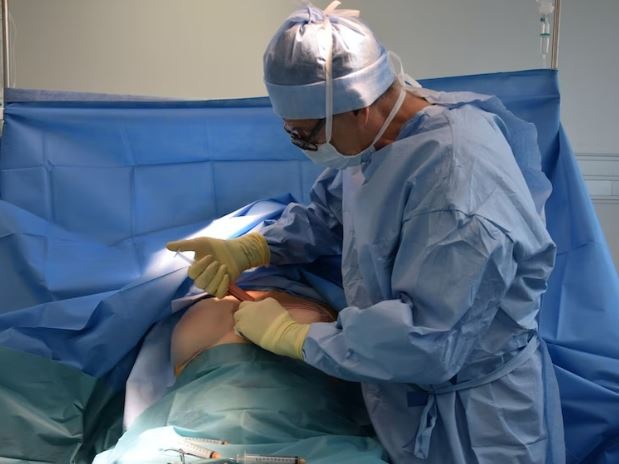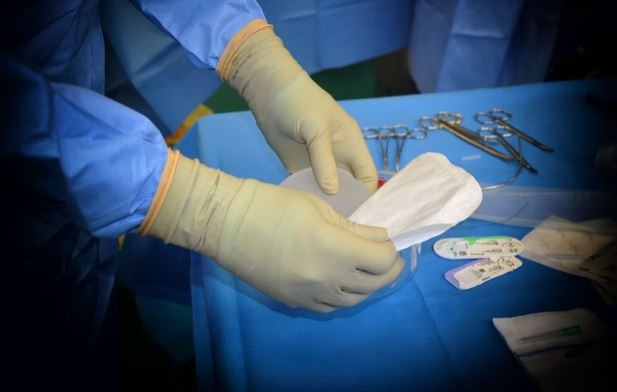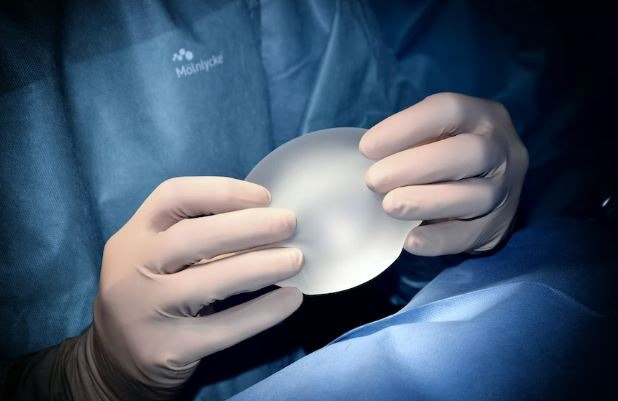Like most women, you want to get through your breast augmentation recovery as quickly as possible to enjoy your breasts’ new look and feel. While every woman heals differently, a few tips can help speed up the process.
If you need these services, you can find breast augmentation & implant surgery in Dubai. This blog post will discuss some of the best ways to recover from breast augmentation surgery. Follow these tips, and you’ll return to your old self in no time!
What is Breast Augmentation?
Breast augmentation is a surgical procedure that involves placing implants into the breasts to increase their size, fullness, and shape. The surgery can be performed using silicone gel or saline implants, and incisions can be made in various locations, including under the breast, around the areola, or in the armpit. After the surgery, you will likely experience soreness, swelling, and bruising. These side effects will subside within a few weeks. You can do a few things to speed up your recovery.
Get Plenty of Rest
One of the best things you can do for your body after surgery is to get plenty of rest. This doesn’t mean you need to spend your days in bed; rather, take it easy and avoid any strenuous activity. Also, be sure to get plenty of sleep at night. Your body needs time to heal, so give it the rest it needs.
Drink Lots of Water
It’s important to stay hydrated after surgery. Consuming a lot of water will help flush the anesthesia out of your system and keep your body functioning properly. It will also help reduce swelling. Aim to drink at least two liters of water every day.
Wear Your Compression Garment
Your surgeon will likely give you a compression garment to wear after surgery. This garment helps support your breasts as they heal and can also help reduce swelling. Be sure to wear it as directed by your surgeon.
Avoid Smoking
Smoking can delay your healing process and increase the risk of complications. If you smoke, it’s important to quit before surgery. If you cannot quit, avoid smoking for at least two weeks after surgery.
Take Time Off Work
Recovery from breast augmentation surgery can take several weeks. Therefore, you will likely need to take at least a week off work to recover. You may need to take even longer if your job is physically demanding. Talk to your surgeon about how much time you should take off work.
Address Nausea and Vomiting
Some patients experience nausea and vomiting after surgery. This is usually due to the anesthesia. If you are nauseous, drink plenty of fluids and avoid fatty or greasy foods. You can also try taking an over-the-counter medication like ginger ale or Dramamine.
Watch Your Diet
Eating a healthy diet is important for your overall health, but it’s especially important after surgery. A nutritious diet will enhance the healing process and reduce issues like swelling. Be sure to eat fruits, vegetables, and lean protein. Avoid junk foods and alcohol, and avoid consuming sugar.
After surgery, you may not feel like eating much. This is normal. Try eating several small meals throughout the day. This will help your body digest food more easily and reduce nausea.
Monitor Your Breast Implants
After surgery, monitoring your breast implants for any signs of infection or leakage is important. Also, contact your surgeon if you experience any problems with your implants.
Limit Your Activities
It’s important to limit your activities after surgery. Avoid any activity that may strain your incisions or cause pain. This includes lifting heavy objects, exercising, and sexual activity. Gradually increase your activity as you heal.
Pain Management
You will likely experience some pain and discomfort after surgery. Your surgeon will prescribe medication to manage your pain. In addition, you can take over-the-counter medications like ibuprofen or acetaminophen. Be sure to follow your surgeon’s instructions for pain management.
Sleep on Your Back
Sleeping helps reduce swelling and pain after surgery. It also prevents your breasts from putting pressure on your chest wall. Use pillows to prop yourself in bed and ensure you are comfortable.
Start Walking
Walking is a great way to get your blood flowing and speed up your recovery. Taking a short walk each day will help your body heal and reduce swelling. Be sure to listen to your body and stop if you experience pain.
What Should You Wear?
You will likely be able to return to your normal activities within a few weeks. However, you should avoid strenuous activity for at least six weeks. During this time, it’s important to wear supportive clothing. This includes a sports bra or compression garment. In addition, of course, you should look for pieces that fit your needs and preferences.
Timeline for Recovery
Most patients takes approximately four weeks to recover from breast augmentation surgery fully. However, this timeline can vary depending on the individual. For example, some patients may experience longer recovery due to age or smoking habits. Talk to your surgeon about what you can expect during your recovery.
Two Weeks
At this point, most of the swelling should have gone down. You will still have some bruising and soreness. However, you should be able to move around more easily. You may also be able to start wearing regular clothes again. Be sure to listen to your body and take things slowly.
Four Weeks
At four weeks, most patients return to normal activities. You may still have some bruising and soreness. However, this should be manageable with pain medication. If you experience any problems during your recovery, contact your surgeon.
Two Months
After two months, you should fully heal from your surgery. At this point, you can resume all normal activities. You may also start wearing underwire bras again. Of course, it’s important to listen to your body and take things slowly.
The Bottom Line
Breast augmentation is major surgery. However, following these tips can help you recover quickly and safely. Be sure to listen to your body and follow your surgeon’s instructions. You will return to your normal activities with proper care in no time.



